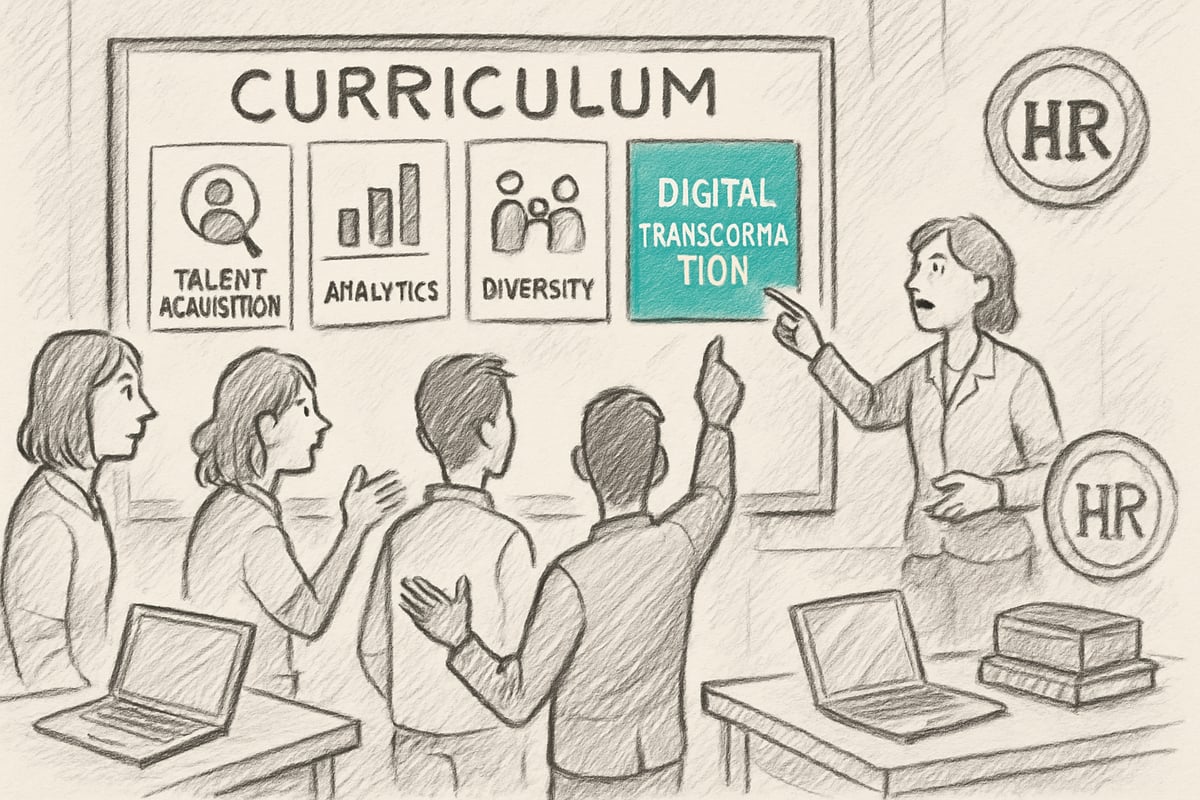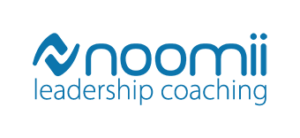Hr Management Course Guide: Your Pathway to Success in 2025
In a rapidly changing business world, mastering HR management is now essential for anyone aiming to advance their career or drive organizational results. The right hr management course can empower you with up-to-date knowledge and strategies, making you a valuable asset in any workplace. This guide will help you explore why HR skills are highly sought after, how to select the best courses, and the top trends shaping the field. If you are ready to take the next step, practical advice and trusted resources like Accountability Now can set you on the right path toward HR success.
The Growing Importance of HR Management in 2025
In today’s business world, the value of a robust hr management course is clearer than ever. As organizations adapt to new challenges, HR professionals are stepping into roles that influence not just hiring, but the overall direction and success of companies. Let’s explore why 2025 is a pivotal year for HR, and how the right hr management course can position you at the forefront of these changes.

The Evolving Role of HR Professionals
The traditional view of HR as purely administrative has shifted. In 2025, HR professionals are recognized as strategic business partners. Completing a hr management course now means learning how to use data-driven insights to inform decision-making and drive organizational performance.
Modern HR teams focus on the entire employee experience, from onboarding to long-term engagement. They implement feedback loops and measure satisfaction to retain top talent. For instance, Google’s people analytics team uses advanced data techniques to boost retention and productivity, demonstrating the real-world impact of skills taught in a contemporary hr management course.
HR leaders today are also champions of company culture. They play a vital role in shaping policies that foster innovation, encourage collaboration, and ensure every employee feels valued. This evolution makes HR an exciting, dynamic field for those considering a hr management course.
Key Trends Shaping HR in 2025
Several trends are redefining HR’s landscape. The rise of hybrid and remote workforces demands new management approaches and flexibility. Diversity, equity, and inclusion (DEI) are now core priorities, shaping everything from recruitment strategies to leadership development.
Technology is at the heart of this transformation. AI and automation streamline repetitive HR tasks and provide actionable insights. According to Gartner, 72% of companies are increasing investments in HR technology. For those considering a hr management course, mastering these tools is essential. For more on this trend, see the latest HR technology adoption statistics.
These trends are reflected in course curricula. Future-focused programs prepare students to integrate technology and foster inclusive cultures. By enrolling in a hr management course, you’ll gain the skills needed to lead in a rapidly changing field.
Demand for Skilled HR Managers
There is a growing demand for professionals who have completed a hr management course. The U.S. Bureau of Labor Statistics projects a 7% job growth for HR managers through 2032, outpacing many other fields. However, a significant skills gap exists, particularly in digital HR competencies.
To address this, employers seek candidates who have not only foundational knowledge but also micro-credentials and up-to-date training. Continuous upskilling is crucial. According to LinkedIn Learning’s 2024 Workplace Learning Report, organizations are prioritizing ongoing professional development.
A quality hr management course offers practical experience, access to professional networks, and industry-recognized certifications. These factors make graduates highly competitive in the job market and ready to meet evolving employer needs.
Impact on Organizational Success
The influence of HR extends far beyond hiring. Well-trained HR professionals, often graduates of a hr management course, directly impact employee retention, productivity, and organizational innovation. For example, Netflix’s culture-driven HR practices have become a benchmark for success, showing how strategic HR can transform a company’s trajectory.
Companies with strong HR functions outperform their peers by 25% in profitability, according to Deloitte. Strategic HR leaders create environments where employees thrive and businesses grow.
In short, the right hr management course not only advances individual careers but also drives organizational excellence. As the business landscape evolves, the importance of skilled HR leaders will only increase.
Choosing the Right HR Management Course
Selecting the ideal hr management course is one of the most important decisions for aspiring professionals in 2025. With a rapidly shifting business environment, the right course can set the stage for personal growth and organizational impact. As you navigate the options, understanding course types, evaluation criteria, and career outcomes will empower you to make a confident decision.

Types of HR Management Courses Available
Today’s hr management course landscape offers a broad spectrum of learning experiences. You can pursue undergraduate degrees, specialized postgraduate programs, or targeted certification courses, each tailored to different career stages.
Learning formats are more flexible than ever. Online courses provide global access and self-paced study, while in-person and hybrid models allow for direct engagement and networking. Short-term workshops and micro-credential programs are ideal for professionals seeking to update skills quickly or specialize in areas like HR analytics or DEI.
Common certifications include SHRM-CP, HRCI, and CIPD, which are recognized internationally. For example, SHRM-CP focuses on operational and strategic HR, while CIPD is valued for its UK and European relevance. Choosing the right format and certification depends on your career goals and learning preferences.
Factors to Consider When Selecting a Course
When choosing an hr management course, several factors deserve careful attention. First, verify that the program is accredited and recognized by leading HR bodies. Accreditation ensures your qualification will be valued by employers worldwide.
Next, review the course curriculum. The best programs integrate up-to-date topics like HR analytics, digital transformation, and humanistic theories in HR management, which are essential for modern practitioners. Consider flexibility, duration, and delivery mode to match your personal and professional commitments.
Faculty expertise and industry connections can significantly enhance your learning. Seek out programs with instructors who have both academic credentials and hands-on HR experience. Strong alumni networks and employer partnerships often lead to valuable mentorship and job opportunities.
Evaluating Course Outcomes and ROI
Assessing the potential return on investment of your chosen hr management course is vital. Investigate placement rates and read success stories from alumni to gauge the program’s real-world impact. High-quality courses often provide internships and networking opportunities, which can open doors to your first or next HR role.
A cost-benefit analysis is essential. Compare tuition fees to potential salary increases after certification. According to PayScale, certified HR professionals earn on average 15% more than their non-certified peers. Look for additional support services, such as career guidance or access to industry mentors.
Comparing Top HR Management Programs
With so many hr management course options, comparing features and outcomes is key. Leading institutions and online platforms offer unique advantages, from global rankings to innovative curriculum design.
Below is a comparison of top programs:
| Program/Platform | Format | Unique Feature | Global Ranking |
|---|---|---|---|
| Wharton | In-person | Strategic HR focus | Top 10 |
| Cornell | Hybrid | Industry partnerships | Top 20 |
| Coursera | Online | Flexible micro-credentials | Top 50 |
| edX | Online | University-backed content | Top 50 |
For example, Wharton emphasizes strategic HR leadership, while Coursera and edX provide access to micro-credentials and self-paced learning. Consider which platform aligns with your career goals and preferred learning style.
What You Will Learn: Core Curriculum and Skills
Whether you are new to HR or seeking to advance your expertise, a modern hr management course is designed to give you a comprehensive, future-ready skill set. The curriculum blends foundational HR knowledge with emerging trends and practical competencies, preparing you to excel in diverse business environments.

Essential HR Management Topics Covered
A top hr management course begins by establishing a strong foundation in core HR functions. You will explore subjects such as:
- Talent acquisition and workforce planning
- Performance management and employee development
- Compensation, benefits, and legal compliance
These areas are critical for any HR professional. Courses often reference frameworks like the SHRM Body of Competency and Knowledge (BoCK), ensuring that your learning aligns with recognized industry standards. Understanding humanistic theories in HR management, such as those developed by Rogers and Maslow, is also emphasized, as these concepts shape effective people strategies. To dive deeper, review Humanistic theories in HR management.
A robust hr management course ensures you can navigate complex employment laws, foster employee growth, and design fair reward systems.
Emerging Subjects in 2025 HR Courses
As the business landscape evolves, so does the content of every leading hr management course. In 2025, expect to see modules focused on:
- HR technology and analytics
- Diversity, equity, and inclusion (DEI) strategies
- Inclusive leadership and culture
- Change management and organizational agility
Digital transformation is now a standard part of the curriculum, with 68% of HR courses including these modules (Training Industry, 2024). You will learn to leverage data for better talent decisions, implement DEI initiatives, and lead teams through organizational change.
Courses prepare you to address the unique challenges of hybrid workplaces and global talent management, equipping you with tools that are immediately applicable in real-world settings.
Practical Skills and Competencies Developed
A well-designed hr management course is not just about theory. You will develop practical skills that are in high demand:
- Conflict resolution and negotiation techniques
- Strategic thinking and business acumen
- Leadership and clear communication abilities
These competencies are cultivated through interactive methods, including real-world case studies, group discussions, and role-playing simulations. Many programs use scenario-based learning to mimic challenges you will face as an HR leader.
The hr management course experience ensures you are ready to influence decision-making, drive employee engagement, and support organizational goals. By mastering both soft and technical skills, you become a valuable asset in any HR department.
Assessment Methods and Capstone Projects
To demonstrate your mastery, a typical hr management course will include a variety of assessment methods:
- Group projects and team presentations
- Written exams and quizzes
- Industry-relevant capstone assignments
Many courses offer internships or live consulting projects with partner companies, letting you apply your knowledge in practical settings. These experiences are vital for building your professional portfolio and boosting your confidence in HR roles.
A capstone project might involve designing a talent management strategy for a real organization or conducting an HR analytics study.
By the end of your hr management course, you will have a portfolio of achievements, hands-on experience, and the confidence to step into the modern HR landscape.
Steps to Launching Your HR Career After Course Completion
Embarking on your HR journey after completing a hr management course is a pivotal move toward a rewarding and impactful career. The landscape in 2025 is dynamic, offering multiple avenues for growth, skill application, and ongoing development. This section outlines the essential steps to transition from coursework to a thriving HR profession.

Building a Professional HR Portfolio
A robust portfolio is your gateway to standing out in the HR field. After finishing a hr management course, document every significant project, certification, and achievement. Compile case studies, group assignments, and capstone projects that reflect your expertise.
- Include digital badges and certificates from your hr management course.
- Add evidence of successful HR initiatives or simulations completed.
- Use tools like LinkedIn to showcase your portfolio and connect with industry leaders.
Digital portfolios are increasingly valuable. Many top programs now issue e-badges, making it easier to verify your credentials. Remember, a well-organized portfolio not only highlights your skills but also demonstrates your commitment to professional growth.
Gaining Practical Experience
Bridging theory with practice is essential after your hr management course. Seek internships, apprenticeships, or even volunteer roles in HR departments. Real-world experience enhances your understanding of HR operations and builds your credibility with employers.
- Apply for internships through your institution’s career center.
- Join professional bodies such as SHRM or CIPD to access exclusive roles.
- Attend job fairs and HR networking events to meet potential employers.
Participation in industry associations provides access to mentorship programs and insider knowledge. Volunteering in HR-related capacities can also fill experience gaps, especially if you are transitioning from another field.
Navigating the HR Job Market in 2025
The job market for HR professionals is evolving, and those equipped with a recent hr management course are in high demand. Roles like HR analyst, talent manager, and HR business partner are particularly sought after, with many organizations increasingly open to remote and hybrid work models.
- Explore both traditional and remote HR job opportunities.
- Research salary benchmarks and prepare to negotiate your compensation.
- Build relationships with recruiters and hiring managers.
For targeted support in your job search, consider leveraging career coaching resources for HR professionals to navigate opportunities and fine-tune your application strategy. According to recent data, 60 percent of HR positions now offer hybrid work options, underscoring the flexibility available in today’s market.
Continuous Learning and Professional Development
The HR field is rapidly changing, demanding a commitment to lifelong learning even after your hr management course. Pursue advanced certifications, micro-credentials, and stay current with emerging HR technology and legal updates.
- Enroll in courses on the latest HR software and analytics tools.
- Attend webinars, listen to industry podcasts, and read HR trend reports.
- Map out a personal learning plan to guide your growth into 2025 and beyond.
By investing in your continuous development, you ensure your skills remain relevant and your career trajectory stays strong.
HR Management Course Success Stories and Industry Impact
Real-World Examples of HR Career Transformation
Completing a hr management course has been a pivotal step for countless professionals aiming to accelerate their HR careers. Consider the journey of an HR assistant who, after earning a globally recognized certification, advanced to HR director within three years. Alumni frequently share stories of promotions, expanded responsibilities, and increased confidence in strategic decision-making.
Testimonials from course graduates often highlight practical skills gained through hands-on projects, mentoring, and networking. These experiences help participants build robust portfolios, making them stand out in competitive job markets.
- Rapid career progression
- Access to global HR opportunities
- Enhanced leadership capabilities
By investing in a structured hr management course, professionals unlock doors to leadership roles and long-term career satisfaction.
How Organizations Benefit from Trained HR Professionals
Organizations that prioritize enrolling their teams in a hr management course see measurable improvements in employee engagement, retention, and compliance. For example, after implementing a targeted HR upskilling initiative, one company reported a significant turnaround in workforce satisfaction and productivity.
A strong focus on diversity and inclusion, fostered by up-to-date HR training, leads to more innovative and resilient teams. According to Diversity and inclusion statistics, companies with inclusive HR practices outperform competitors in both performance and employee satisfaction.
- Improved risk management
- Higher retention rates
- Stronger organizational culture
Investing in a hr management course creates ripple effects that benefit every level of the business.
The Future of HR Management Education
The landscape of hr management course offerings is evolving rapidly, with new technologies and methodologies shaping the learning experience. By 2025, experts predict that artificial intelligence, virtual reality, and immersive simulations will become integral parts of HR education.
Industry forecasts, such as those highlighted in the HR outsourcing market growth, underscore the expanding scope and impact of HR roles globally. As the demand for agile, tech-savvy HR leaders grows, future courses will emphasize digital transformation, data analytics, and adaptive leadership.
- AI-powered HR tools in curriculum
- Interactive learning modules
- Global best practices
Staying updated with a modern hr management course ensures professionals remain relevant and prepared for emerging challenges.
Frequently Asked Questions About HR Management Courses
Prospective students often have questions about enrolling in a hr management course. Entry requirements vary, but most programs welcome candidates with a bachelor’s degree or relevant experience. Course durations range from intensive six-week certifications to comprehensive two-year master’s degrees.
Support services typically include career counseling, job placement assistance, and access to alumni networks. Many programs also offer guidance on building a personal brand and securing interviews, ensuring graduates are well-equipped for the next step in their HR journey.
Resources and Next Steps for Aspiring HR Professionals
Embarking on a successful HR career requires more than just completing an hr management course. To stay competitive in 2025, you will need to leverage the right educational resources, funding options, professional networks, and learning strategies. Here is your roadmap for making the most of every opportunity as you transition from student to HR leader.
Top Online Platforms and Institutions Offering HR Courses
Choosing the right platform for your hr management course can shape both your learning experience and your career trajectory. Today’s most reputable options include Coursera, edX, LinkedIn Learning, and the Society for Human Resource Management (SHRM). Each offers a range of programs, from foundational certificates to advanced specializations.
| Platform | Course Types | Certification | Flexibility |
|---|---|---|---|
| Coursera | Degrees, Certificates | Yes | High |
| edX | MicroMasters, Certs | Yes | High |
| LinkedIn Learning | Short Courses | Yes | Very High |
| SHRM | Professional Certs | Yes | Medium |
When selecting your hr management course provider, compare features, accreditation, and alumni reviews to ensure the best fit for your career goals.
Scholarships, Grants, and Financial Aid Options
Financing your hr management course is more accessible than ever with a variety of scholarships and grants. Many institutions offer merit-based and need-based aid, while some employers provide tuition reimbursement as part of professional development.
Consider these funding sources:
- Government scholarships for HR studies
- Private foundation grants
- Employer sponsorship and tuition reimbursement programs
To maximize your chances, apply early and tailor your applications to highlight your passion for HR. Explore institutional financial aid offices, and do not overlook external grants or employer-based funding when planning your hr management course journey.
Networking and Mentorship Opportunities in HR
Building a strong professional network is a pivotal step after completing your hr management course. Join HR communities, attend industry events, and become a member of associations like SHRM or CIPD to connect with seasoned professionals.
Mentorship can accelerate your growth. Seek opportunities through formal programs or industry groups, or consider working with a coach to sharpen your skills. For those seeking personalized guidance, you can find business coaches for HR careers who specialize in supporting HR professionals at every stage.
Active networking and mentorship open doors to roles, insights, and partnerships that can elevate your HR career.
Staying Ahead: Keeping Your HR Skills Future-Proof
HR is a dynamic field, so ongoing learning is essential. After your hr management course, stay current by subscribing to industry podcasts, webinars, and HR journals. Build a personal learning roadmap for 2025, focusing on emerging topics like HR analytics, digital transformation, and DEI strategies.
Participate in online forums, attend virtual conferences, and sign up for micro-credential programs. For additional resources on accountability and professional growth, visit Accountability Now.
By investing in lifelong learning and staying connected to the latest industry developments, you will ensure your HR expertise remains relevant and valuable.




Leave a Reply
Want to join the discussion?Feel free to contribute!